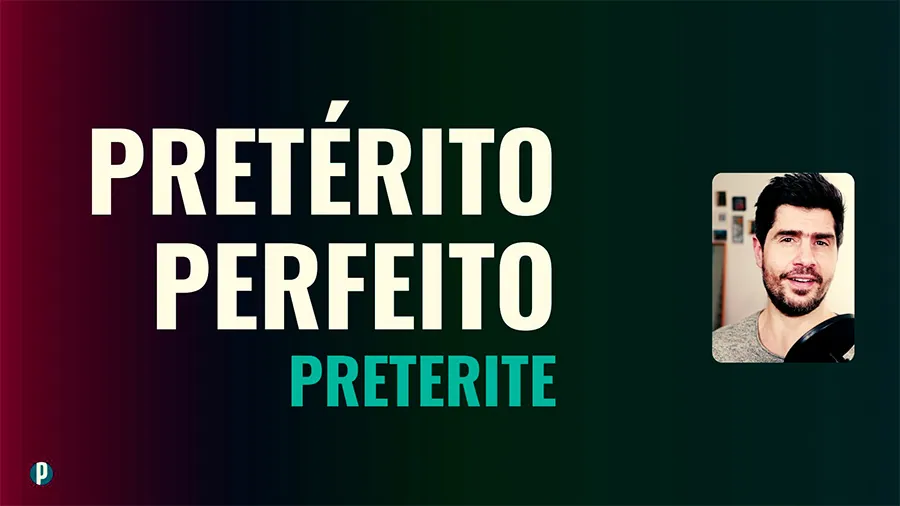Tiempos pasados portugueses: resumen de uso anclado al inglés
In this article, we will look at the Portuguese equivalents of the English Past Simple, Past Continuous, and Past Perfect tenses.
Aquí hay un par de lecturas análogas sobre el Presente y Futuro tiempos:
Tiempos presentes en portugués: resumen de uso anclado al inglés
Tiempos futuros portugueses: resumen de uso anclado al inglés
usaré el verbo dormir (dormir) para todos los ejemplos siguientes:
| Dormir | Preterite Pretérito Perfeito | Dormir | Imperfect Pretérito Imperfeito | |
| Eu | dormi | dormia |
| Tu | dormiste | dormias |
| Ele, ela | dormiu | dormia |
| Nós | dormimos | dormíamos |
| Vocês Eles, elas | dormiram | dormiam |
| Present participle Gerúndio | dormindo | |
| Past participle Particípio passado | dormido |
Pasado simple
There are two Past tenses* that often map onto the English Past simple, namely the Preterite (Pretérito Perfeito) y el Imperfect (Pretérito Imperfeito).
Esto a menudo confunde a los estudiantes cuya lengua materna no tiene este matiz tenso (incluido el inglés). Entonces intentemos entenderlo.
* These are technically called “verb aspects” as there’s only one Past tense.
Preterite – Completed Actions
We use the Preterite to talk about past actions that are completed and well delimited in time:
| A Raquel dormiu até às 10 da manhã. Raquel slept until 10 in the morning. |
Como puedes ver arriba, el Pretérito (dormiu) se traduce al pasado simple (slept) en Inglés.
Further, we can also use a compound verb structure with the auxiliary verb estar in the Preterite followed by the preposition a and the action verb in the Infinitive without any substantial change in meaning:
| A Raquel esteve a dormir até às 10 da manhã. Raquel was sleeping until 10 in the morning. |
Finally, note that we also use the Preterite in situations where, in English, we use the Present Perfect:

Olá! I'm Pedro and I'm your Portuguese teacher.
Learning European Portuguese? Portuguesepedia is an all-in-one platform providing a wealth of learning resources, from bite-sized video lessons to immersive idiomatic dips. Perfect your pronunciation and listening comprehension with listening drills and solidify your grammar with in-depth articles. Start your Portuguese journey today!
Share this article
Get my guide "Key Strategies to Learn Portuguese" for FREE.



